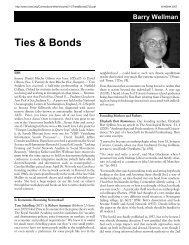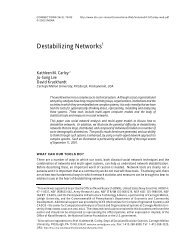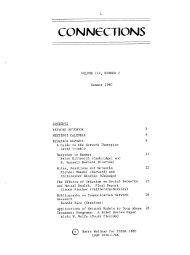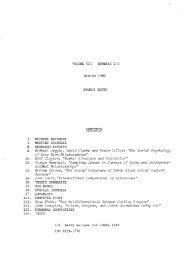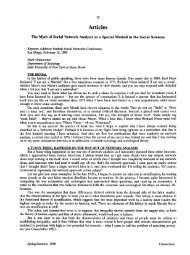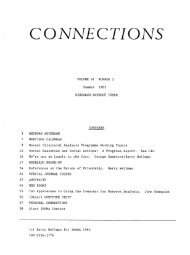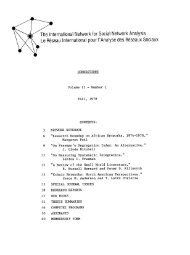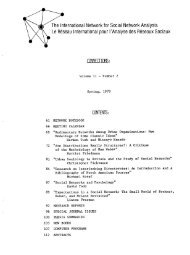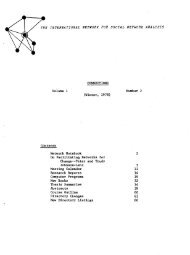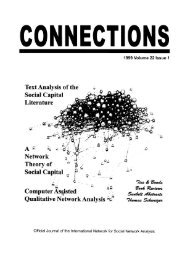Sunbelt XXXI International Network for Social Network ... - INSNA
Sunbelt XXXI International Network for Social Network ... - INSNA
Sunbelt XXXI International Network for Social Network ... - INSNA
You also want an ePaper? Increase the reach of your titles
YUMPU automatically turns print PDFs into web optimized ePapers that Google loves.
Harvard Catalyst Profiles: An Open Source Research Collaboration Website With Automated <strong>Network</strong> Discovery And <strong>Social</strong> <strong>Network</strong> AnalysisWeber, Griffin M.Applying <strong>Social</strong> <strong>Network</strong> Analysis to Clinical and Translational Science in four CTSA InstitutionsVisualization, Software, Intervention, Automated <strong>Network</strong> Discovery, Research <strong>Network</strong>s, Organizational StructureSAT.AM2Harvard Catalyst Profiles is an open source, ontology‐based, research networking website that we built when Harvard received its CTSA award. We createdprofiles <strong>for</strong> 22,000 faculty using a variety of external data sources including PubMed and ISI Thomson Web of Knowledge, and internal Human Resources andadministrative databases. These profiles are linked together through "Passive <strong>Network</strong>s", which are automatically generated based on in<strong>for</strong>mation knownabout investigators, such as two people being co‐authors on articles, having similar interests, or working in offices that are physically close. Users can alsocreate "Active <strong>Network</strong>s", by looking up people they know and manually describing their relationships to them, such as "collaborator" or "past advisor".Profiles calculates a variety of social network analysis metrics <strong>for</strong> individuals and <strong>for</strong> different levels of aggregation (e.g., departments and institutions) anduses these to construct numerous interactive visualizations, reports, and personalized search tools. We use SNA to guide us in allocation of CTSA pilot grantfunds, to identify faculty who are not advancing in their careers, to understand gender and race inequalities, and to build interdisciplinary teams in novel ways.Profiles is used in institutions around the world, including several CTSAs. This enables us to per<strong>for</strong>m federated queries and compare the structure ofcollaboration networks across these different sites.Health As Status? <strong>Social</strong> Interaction And Inequality In And Older Adult CommunitySchafer, Markus H.<strong>Social</strong> <strong>Network</strong>s and HealthERGM/P*, Status, Centrality, HealthFRI.PM1The overlap between social networks and health represents a key area of research in social gerontology, but few studies adopt a full‐network design to addressthe topic. Set in a continuing care retirement community, this research focuses on how health is related to the discrepancies between outgoing and incomingreports of social behavior. Sociometric and health data were obtained from adults ages 74‐97 (n=123). Results of an ERGM analysis show that across severaldimensions of health, better health was related to a higher probability of receiving social ties, but a lower probability of sending social ties. Findings areinterpreted in light of status processes which emerge in bounded social settings.



